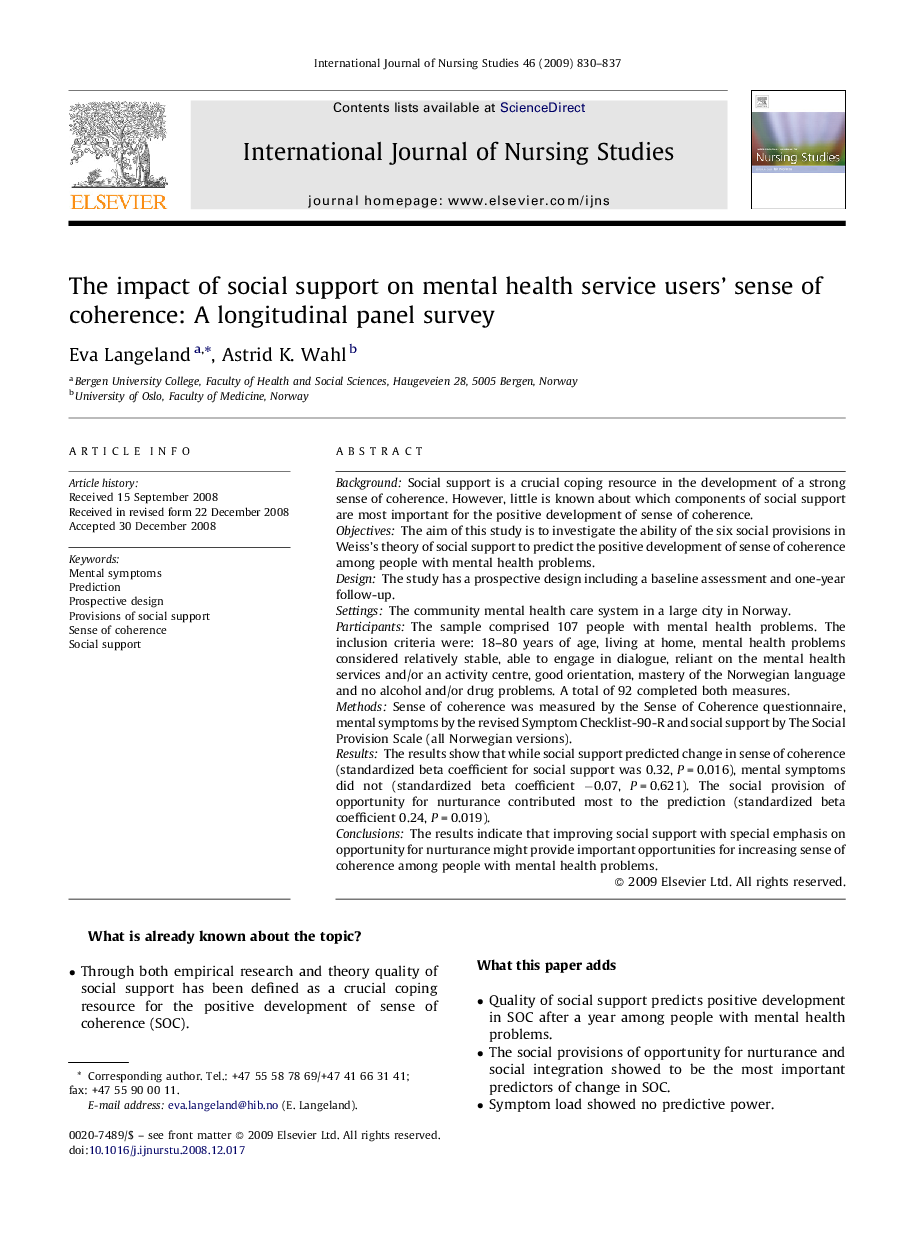| Article ID | Journal | Published Year | Pages | File Type |
|---|---|---|---|---|
| 1077712 | International Journal of Nursing Studies | 2009 | 8 Pages |
BackgroundSocial support is a crucial coping resource in the development of a strong sense of coherence. However, little is known about which components of social support are most important for the positive development of sense of coherence.ObjectivesThe aim of this study is to investigate the ability of the six social provisions in Weiss's theory of social support to predict the positive development of sense of coherence among people with mental health problems.DesignThe study has a prospective design including a baseline assessment and one-year follow-up.SettingsThe community mental health care system in a large city in Norway.ParticipantsThe sample comprised 107 people with mental health problems. The inclusion criteria were: 18–80 years of age, living at home, mental health problems considered relatively stable, able to engage in dialogue, reliant on the mental health services and/or an activity centre, good orientation, mastery of the Norwegian language and no alcohol and/or drug problems. A total of 92 completed both measures.MethodsSense of coherence was measured by the Sense of Coherence questionnaire, mental symptoms by the revised Symptom Checklist-90-R and social support by The Social Provision Scale (all Norwegian versions).ResultsThe results show that while social support predicted change in sense of coherence (standardized beta coefficient for social support was 0.32, P = 0.016), mental symptoms did not (standardized beta coefficient −0.07, P = 0.621). The social provision of opportunity for nurturance contributed most to the prediction (standardized beta coefficient 0.24, P = 0.019).ConclusionsThe results indicate that improving social support with special emphasis on opportunity for nurturance might provide important opportunities for increasing sense of coherence among people with mental health problems.
